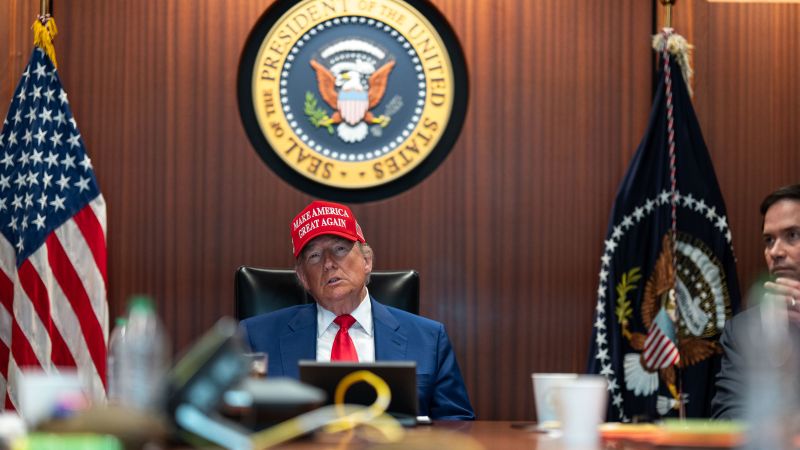President Donald Trump’s order to bomb Iran’s nuclear facilities has sparked a debate on the scope of presidential powers in conducting war without congressional approval. The administration justifies this action under the president’s authority outlined in Article II of the Constitution, emphasizing the need to advance American national interests abroad. While some former officials support this move, legal experts and lawmakers from both parties argue that only Congress can declare war, highlighting the lack of an imminent threat to the United States and the absence of specific authorization for military force.
The War Powers Resolution of 1973 aimed to limit presidential authority in the use of military force following the Vietnam War. Critics, including law professor Ilya Somin, believe that Trump’s actions require congressional authorization due to the scale of the operation. Concerns have been raised about the lack of advance consultation with Congress as required by the War Powers Act. Despite legal scrutiny, the Supreme Court has historically supported expansive presidential powers, influencing the current analysis.
Calls for congressional intervention have emerged, with legislators seeking to reassert Congress’ authority over military actions through a war powers resolution. The debate draws parallels to past conflicts and highlights the need for a national dialogue on the balance of power between the executive and legislative branches. As the situation unfolds, the role of Congress in overseeing presidential actions and authorizing military force remains a pivotal issue for the nation.

